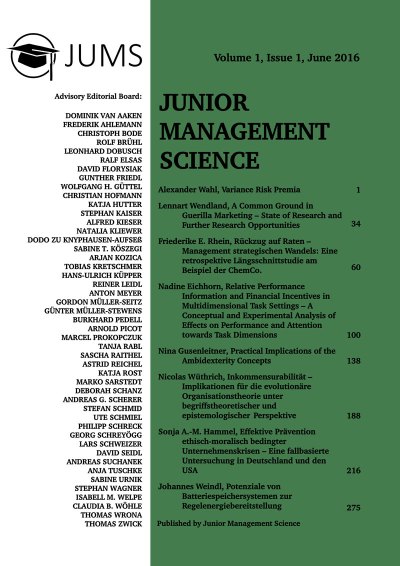Abstract
The provision of Relative Performance Information (RPI) is commonly used by firms to increase the performance of their employees. In case employees have to fulfil tasks that involve multiple dimensions, firms have to decide on the dimensionality of RPI and can basically choose between unidimensional and multidimensional Performance Information. I discuss behavioural effects of unidimensional and multidimensional RPI under different compensation schemes and apply a controlled laboratory experiment to empirically test the influence of the dimensionality of RPI on performance and attention towards task dimensions. The study demonstrates that solely the provision of unidimensional RPI improves performance in multidimensional task settings while the effects for multidimensional RPI are small and insignificant. Importantly, both unidimensional and multidimensional RPI imply a negative effect on the performance of participants with a low position in the provided ranking on overall performance. Additionally, the application of performance-based compensation negatively moderates the performance impact of both forms of RPI which though seem to be especially critical for multidimensional RPI. In this regard, multidimensional RPI induces a significant performance decrease compared to unidimensional RPI in the presence of a performance-based contract. The findings provide some indication that a distortion of attention toward the ‘quantity’ dimension of the applied experimental task may have caused the negative performance effect. Notably, the experimental results do not indicate increased learning effects regarding a task-specific strategy under multidimensional as compared to unidimensional RPI. Overall, no significant differences in attention towards task dimensions between the two forms of RPI can be shown.
Keywords: Relative performance information, Incentive schemes, Multidimensional tasks, Social comparison theory, Competition, Feedback

